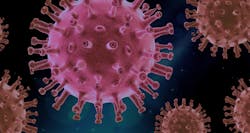For the millions of people living with a rare disease, the novel coronavirus disease COVID-19 presents challenges, from potential reduced access to needed medical care to possible heightened anxiety and stress. A new online survey launched by the National Institutes of Health-supported Rare Diseases Clinical Research Network (RDCRN) aims to find out how the COVID-19 pandemic is impacting individuals with rare diseases, their families, and their caregivers. Results will help the rare disease research community shed light on the needs of people with rare diseases during the COVID-19 pandemic and other potential health crises, in addition to informing future research efforts.
The RDCRN, led by NIH’s National Center for Advancing Translational Sciences (NCATS), in collaboration with nine other NIH Institutes and Centers, currently is made up of 20 recently funded clinical research consortia focused on better understanding how rare diseases progress and developing improved approaches for diagnosis and treatment. Scientists from different disciplines at hundreds of clinical sites around the world work together with about 140 patient advocacy groups to study more than 200 rare diseases, including immune system disorders, heart, lung and kidney disorders, brain development diseases and more.
“As a leader in fostering innovative, collaborative clinical research to improve the lives of individuals with rare diseases, the RDCRN is uniquely positioned to carry out a survey like this,” said Anne Pariser, MD, director of the NCATS Office of Rare Diseases Research, which oversees the RDCRN. “The network has the necessary infrastructure, disease expertise, and access to patients through patient organizations to find answers to important questions.”
Though individually rare, affecting only a few hundred to several thousand people, rare diseases collectively affect an estimated 30 million people in the United States. Many rare diseases are life-threatening, and about half of those affected are children.
The research survey, developed and led by the RDCRN Data Management and Coordinating Center at Cincinnati Children’s Hospital Medical Center, is one of the first efforts nationwide to quantify the impact of a health crisis on the rare disease community. It is seeking responses from at least 5,000 people with a rare disease or caring for someone who has a rare disease. The survey will be distributed online to participants. In addition, some RDCRN-funded scientists plan to incorporate survey results into natural history studies, which follow patients to chart the progression and course of a disease. The survey is open to anyone with a rare disease, along with family and caregivers, and is not limited to the diseases studied within the RDCRN.
The impetus for the survey began through conversations among network researchers and patient advocacy organizations. Patients, families, and caregivers were worried about how COVID-19 might affect them.
Ultimately, the researchers hope the survey will help determine how the RDCRN can respond to the rare disease community’s concerns by providing information and advice through its network of medical experts and patient advocacy groups.

